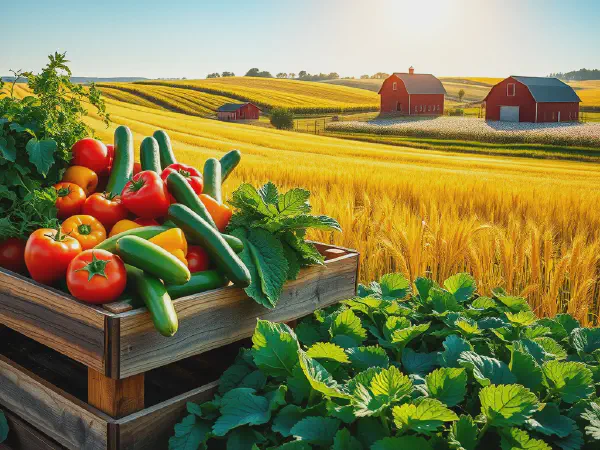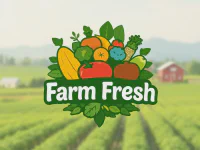Farm Fresh Food

Farm Fresh Food

The food you buy at the grocery store is not always grown on a local farm. In fact, only 15% of the food in the average American diet is grown in the U.S. That means the remaining 85% of the food you are eating is grown in other countries. If you are looking for fresh, locally grown food, one great way to find it is to visit a local farmer’s market. These farmer’s markets sell fruits, vegetables, eggs, and meats directly from local farms.
Produce is grown locally and often from family-owned farms.
Growing your own food supports local farms in the surrounding area and helps to preserve open spaces. When you buy local food it supports the farmer and the local economy, and you can be sure of where your food is coming from.
You’ll notice that the produce is more likely to be in season, and the quality is better.
When you buy food at the grocery store, you have no idea where it’s been. It might have been raised on a big, commercial farm thousands of miles away. On the other hand, you can usually find out where your local farmers market vendors get their produce. They can either grow it themselves or purchase it from a local farmer.
Buying produce from local farms keeps your money local, and supports the local economy.
When you buy food directly from a local farmer, you know exactly where it came from. And because the farmer doesn’t have to travel long distances, they are more likely to care about the quality of their food. This results in higher-quality food that’s better for you and the environment. Plus, you can ask questions about how the food was grown, and if it’s been treated with pesticides or other chemicals.
It also helps the environment by reducing the amount of fuel required to bring the food to you.
Growing your own food on your property allows you to buy fresh produce from local farms, allowing you to avoid the environmental impact of food that has to travel long distances to reach your grocery store.
Buying local also cuts down on food waste.
Not only does buying local food mean you’re supporting your local farmers and artisans, but you’re also more likely to eat foods closer to their natural state, since they haven’t been sitting around on a grocery store shelf for weeks (or months!). Food waste is a serious problem in our country, leading to approximately one-third of all food produced in the United States to end up in the garbage. By buying local foods, you’re cutting down on food waste and supporting small farms.
You can also try growing your own produce at home.
Growing your own food allows you to choose what you want to eat and how you want to grow it. Growing your own food is also much less expensive than buying food from the grocery store. Plus, you can control the quality of the food you eat.
Organic produce is grown without the use of pesticides and fertilizers.
No matter where you purchase your food, you want to know how your farmer was treated before arriving at your local grocery store. Organic farms are treated with pesticides and fertilizer sparingly and only after consulting with a licensed agronomist. Organic farms also utilize natural pest control strategies. When it comes to food, it’s always better to know where your food comes from and how it was treated before you eat it.
Conclusion
There is no escaping the fact that food is expensive. Whether you’re shopping at a grocery store or a farmer’s market, you’re still going to have to pay a premium for the food you want. Growing your own food on your own farm allows you to control what goes into your food. You might decide to grow heirloom varieties of your favorite vegetables and fruits, or you could grow potatoes. You decide! Growing your own food also gives you the ability to have control over the nutritional value of your food. You can control the amount of sugar or fat that goes into them, or you can even grow your own organic varieties of food.
Related Links
Farm Fresh SuppliesAchieving a Bright Smile with Teeth Whitening and Colored Fillings
